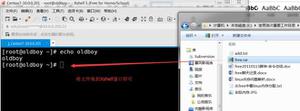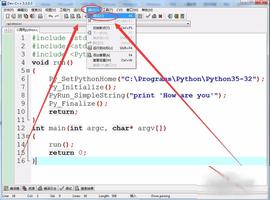Python如何利用动态属性处理JSON数据源[python高级]

利用动态属性处理JSON数据源
属性:在Python中,数据的属性和处理数据的方法统称属性。
元编程:用元类进行编程,元类→类→对象,元类比类更抽象,生成类的类。
1、使用动态属性访问JSON类数据
第一版:利用json.load(fp)审查数据
from urllib.request import urlopenimport warnings
import os
import json
URL = 'http://www.oreilly.com/pub/sc/osconfeed'
JSON = 'data/osconfeed.json'
def load():
if not os.path.exists(JSON):
msg = 'downloading {} to {}'.format(URL, JSON)
warnings.warn(msg) #如果需要下载就发出提醒。
with urlopen(URL) as remote, open(JSON, 'wb') as local: #在with语句中使用两个上下文管理器分别用于读取和保存远程文件。
local.write(remote.read())
with open(JSON) as fp:
return json.load(fp)#json.load函数解析JSON文件,返回Python原生对象。
第二版:使用动态属性访问JSON类数据
第一版查阅深层数据的格式比较冗长,例如feed'Schedule'40,我们希望在读取属性上采用feed.Schedule.events[40].name这类方式来改进。并且第二版的类能递归,自动处理嵌套的映射和列表。
from collections import abc
class FronenJSON():
def __init__(self,mapping):
self.__data=dict(mapping)#创建副本,同时确保处理的是字典。
def __getattr__(self, name):#仅当没有指定名称的属性才调用__getattr__方法。
if hasattr(self,name):
return getattr(self.__data,name)
else:
return FronenJSON.build(self.__data[name])
@classmethod
def __build__(cls,obj):
if isinstance(obj,abc.Mapping):#判断obj是否是映射。
return cls(obj)#创建FrozenJSON对象。
elif isinstance(obj,abc.MutableSequence):
return [cls.build(item) for item in obj]#递归调用.build()方法,构建一个列表。
else:#既不是字典也不是列表,则返回元素本身。
return obj
分析: FronenJSON类的关键是__getattr__方法。仅当无法使用常规的方式获取属性(即在实例、类或超类中找不到指定的属性),解释器才会调用特殊的__getattr__方法。
相关推荐:《Python相关教程》
2、处理无效属性名
在Python中,由于关键字被保留,名称为关键字的属性是无效的。因此需要对第二版中的__init__进行改进:
def __init__(self,mapping):self.__data={}
for key,value in mapping.items():
if keyword.iskeyword(key):
key+='_'#与Python关键字重复的key在尾部加上下划线。
self.__data[key]=value
3、使用特殊方法__new__
第三版:使用__new__构造方法把一个类转换成一个灵活的对象工厂函数。
from collections import abc
class FronenJSON():
def __new__(cls, arg): # __new__是类方法,第一个参数是类本身cls。
if isinstance(arg, abc.Mapping):
return super().__new__(cls) #委托给超类object基类的__new__方法处理。
elif isinstance(arg, abc.MutableSequence): # 余下方法与原先的build方法一致。
return [cls(item) for item in arg]
else:
return arg
def __init__(self,mapping):
self.__data={}
for key,value in mapping.items():
if keyword.iskeyword(key):
key+='_'
self.__data[key]=value
def __getattr__(self, name):
if hasattr(self,name):
return getattr(self.__data,name)
else:
return FronenJSON(self.__data[name])
以上是 Python如何利用动态属性处理JSON数据源[python高级] 的全部内容, 来源链接: utcz.com/z/540277.html






